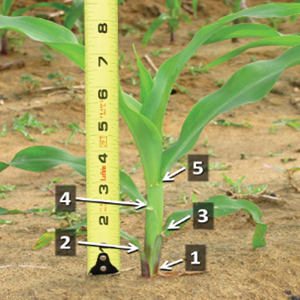Tariffs and the Uncertainty Principle
By their nature, ag retailers and their grower-customers are used to a fair amount of uncertainty season after season. After all, one of the factors that impacts the entire agricultural marketplace each year is weather, something that, by its nature, is fraught with uncertainty.
In fact, one of the emails I received this spring summed up this uncertainty principle quite nicely. It came from a friend at a MFA location in Missouri in an attempt to explain why it had taken so long to get back to my original inquiry. “We went from too muddy and very cold to almost completely planted corn and soybeans in a little less than four weeks,” the email response said.
Weather is an uncertainty devil that agriculture knows all too well. However, in 2018 thus far there have been many other uncertainties that have cropped up, and these are clearly taking their toll on the entire marketplace’s mindset and overall mood.
Take agricultural exports, for example. For several years China has been an important part of the American agricultural outlook year-after-year. With a population of more than 1 billion and strong economic growth, China has had a decided appetite for many U.S.-grown crops, such as sorghum, corn, and soybeans.
However, back in April the U.S. government began to question China’s overall trade practices and hinted that higher tariffs on certain products were being discussed. Naturally, China’s leaders fought back, implying that they would impose higher tariffs on American products in retaliation.
While all this banter was going on, many China buyers simply stopped purchasing U.S. crops. In fact, throughout April and May many shiploads of American sorghum and soybeans ended up being diverted to new buyers in other parts of the world, with China increasing its crop imports from countries such as Brazil and Russia.
Next on the uncertainty list for agriculture is the 2018 Farm Bill. With all the issues surrounding exports and already-low commodity prices depressing farm incomes, many in agriculture were hoping a new Farm Bill would provide some form of economic cushion. However, in late May the U.S. House of Representatives failed to pass the $867 billion 2018 Farm Bill on the first try.
“Between low commodity prices, a suffering ag economy, extreme weather conditions, and disease, growers need access to a strong Farm Bill after Sept. 30,” National Association of Wheat Growers President Jimmie Musick said in a statement. “Congress needs to enact a Farm Bill before the current one expires to give farmers long-term certainty that a safety net will be available through these uncertain and difficult economic conditions.”
Zippy Duvall, President of the American Farm Bureau Federation, echoed these views. “We are already starting to hear from farmers across the nation, many of whom are perplexed and outraged at this vote,” Duvall said. “They are facing very real financial challenges.”
CropLife® magazine in June released the results of its Mid-Year Survey of the nation’s CropLife 100 ag retailers. At this point in the year 72% of respondents were rating 2018 between a four and a six on a 10-count scale — a solid “good” ranking. Only 14% were expecting the year to be “poor,” rating between a one and a three.
But if these new-market uncertainties continue and even spread into other areas of the agricultural business, I seriously doubt anyone in the ag retail industry will continue to rate 2018 so highly in terms of a positive outlook.






